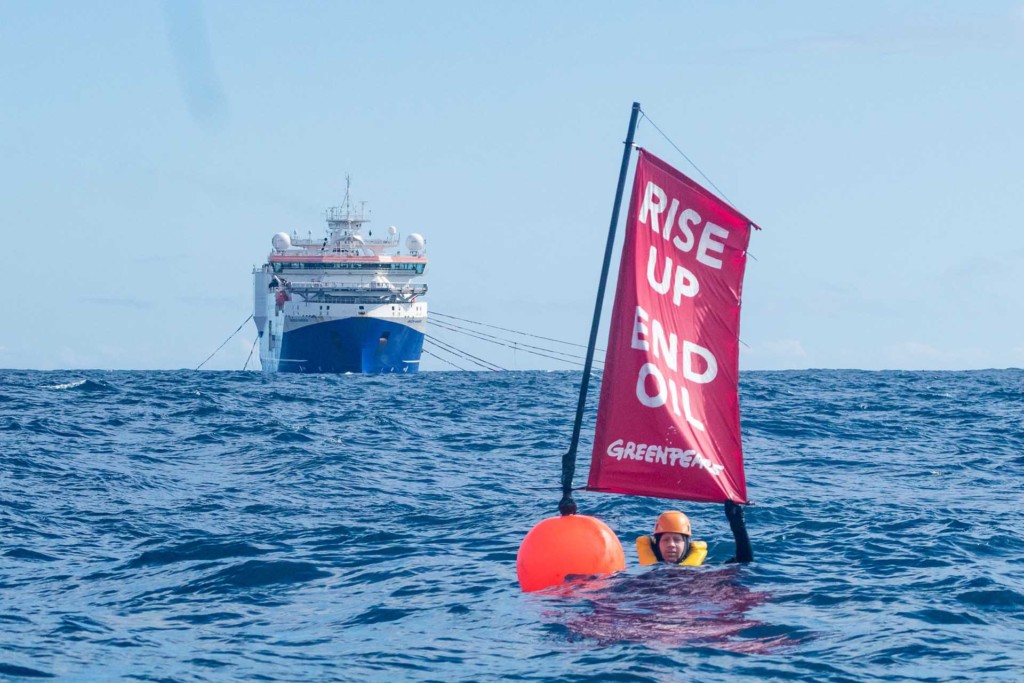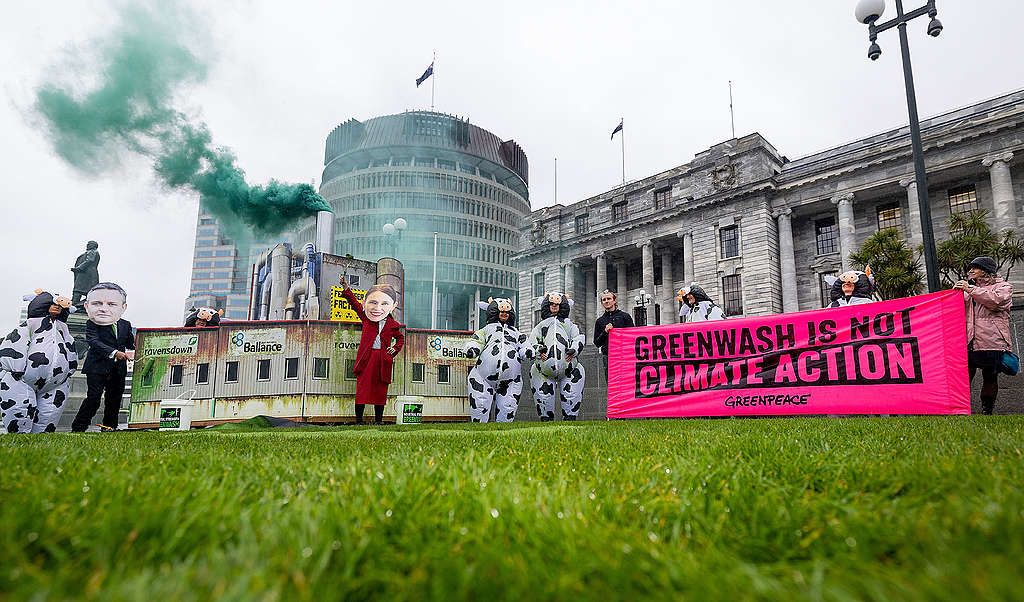We live in the era of the Climate Wars. On one side are the big polluting industries – oil, coal, gas, meat and dairy – fighting tooth and nail to protect their ability to keep polluting, in order to make profit. And on the other side, the ecological movement and its allies are fighting to force these industries to cut their climate pollution, in order to protect a habitable planet.

However, in recent years, while the combatants have stayed much the same, the battlefield itself has moved. The site of the Climate Wars has moved from climate denial to greenwashing.
We used to be fighting outright climate deniers in the oil, coal, gas, meat and dairy industries, and the allies they funded. But we have mostly won the battle against climate denial, so now these polluting industries have moved to greenwashing as their next line of defence.
‘Yes’, they concede, ‘climate change is a real thing but don’t worry we are taking action on it.’ The polluters produce sustainability reports, and have signed up to emissions reduction targets a decade or two in the future, and are buying carbon offsets by the millions of tonnes. Some of it is real but much of it is just greenwashing.
Sorting out the greenwashing from real climate action is now the main battlefield.
Greenwashing is dangerous because it intentionally lulls many people into a false sense of security, thinking that things are under control when they’re not and that can mean they stop calling for action at exactly the time when we need to be increasing the volume of that call.
And it is over greenwashing that the parallel battles are happening right now in Australia and New Zealand.
Australia’s Safeguard Mechanism
The Australian Government is proposing a new climate policy, called the ‘Safeguard Mechanism’, which makes some good noises, but which allows 113 new oil, gas and coal projects. Now you don’t have to be a climate genius to know that any policy that allows gigatonnes more carbon to be dug up and burnt is not a climate policy worth having. It is greenwashing. In Australia, the Australian Green Party is rightly refusing to vote for this greenwashing nonsense in the Senate.
New Zealand’s He Waka Eke Noa
The New Zealand Government is proposing a new climate policy, called ‘He Waka Eke Noa’, which is a voluntary agribusiness scheme put forward by… agribusiness. He Waka Eke Noa also makes some good noises but it only cuts emissions from the biggest polluting sector, agribusiness, by 1%, according to their own modelling. Now agribusiness’ biological emissions – methane, nitrous oxide – from animals and fertiliser make up about half of New Zealand’s total emissions. So a government relying on a climate policy that cuts those emissions by less than 1%, from the industry producing around half of New Zealand’s emissions, is also greenwashing.

So we have these parallel climate wars in Australia and New Zealand – one about fossil fuels and one about meat and dairy. And we have Labour/Labor Governments on both sides of the Tasman promoting these greenwashing schemes. The other parallel is that both Governments are proposing to rely on dodgy carbon offsetting schemes to meet their Paris commitment targets. And there are right wing oppositions which vary from climate denial to greenwashing who disagree with the Governments’ proposals.
But it is not exactly the same on both sides of the Tasman sea. In Australia the Green Party is calling out the greenwashing for what it is, while in New Zealand, the Climate Minister is also Co-Leader of the Green Party, and he welcomed He Waka Eke Noa when it was launched. This has understandably complicated and confused the climate movement in New Zealand.
The fact that the polluters and their political representatives have abandoned climate denial does not mean the Climate War is over. It has simply moved to a new site of conflict – greenwashing. It’s messier than the last battlefield but we have to fight in it nonetheless, and sometimes that means calling out greenwashing from unlikely sources.
